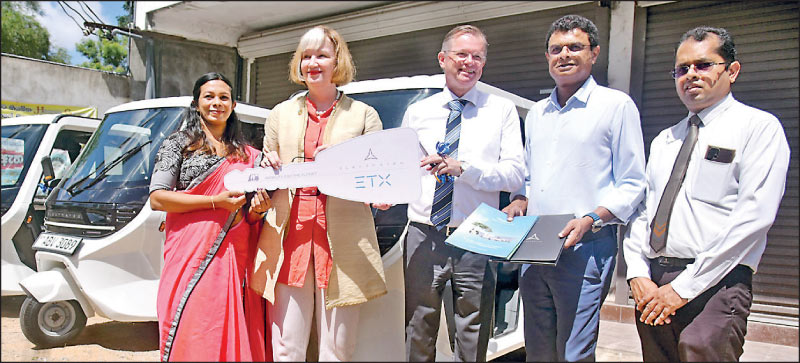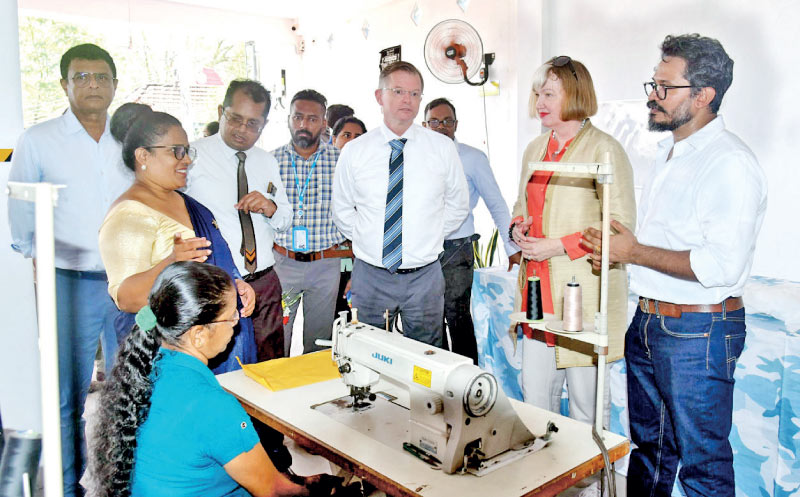The Netherlands’ Foreign Affairs Ministry has invested €300,000 in a cluster project aimed at enhancing the sustainability and growth of local batik SMEs in Gampaha, Sri Lanka. This initiative, titled “Healthy Socio-Economic Recovery of the Apparel Sector, Micro and Small Enterprises in Severely COVID-19 Impacted Gampaha District of Sri Lanka,” focuses on equipping these businesses with solar panels and commercially produced electric three-wheelers, along with commercial chargers.
Implemented through the International Labour Organisation (ILO) and in collaboration with the National Enterprise Development Authority (NEDA), the project seeks to support economic recovery and tackle challenges faced by the batik and apparel industry, such as waste management, rising energy costs, and a shortage of skilled artisans.
During the launch event, Deputy Ambassador of the Netherlands to Sri Lanka, Iwan Rutjens, emphasized the importance of innovation in the SME sector, which constitutes around 75% of Sri Lanka’s enterprises. He advocated for investments in sustainable technology to accelerate economic recovery and enhance the resilience of employees and businesses.
The initiative is expected to benefit approximately 350 entrepreneurs within the batik and apparel clusters in Gampaha. Key components of the project include grants for over 30 machines and solar panels for factories. The provision of electric three-wheelers aims to reduce the high energy costs often faced by SMEs in Sri Lanka. These sustainable vehicles, developed by Elektrateq, a subsidiary of VEGA Innovations, mark the introduction of the first commercially produced full electric three-wheelers in the country.
The project also includes training sessions in collaboration with the Sri Lanka Institute of Textile and Apparel and the University of Moratuwa, covering essential topics such as occupational safety, financial literacy, and apparel development.
Additionally, a sales outlet constructed from a shipping container has been introduced at the Suraksha Batik Centre to provide local artisans with a platform to showcase their products. Notably, the project has led to the development of a zero-waste batik production method, which is currently being patented and has the potential to benefit batik artisans nationwide.
The project also aims to expand the batik industry’s offerings beyond traditional sarongs and saris to include beachwear, shirts, and ties, further enhancing the sector’s growth potential. The historical ties between the Netherlands and the batik industry underscore the importance of this initiative for both nations.



